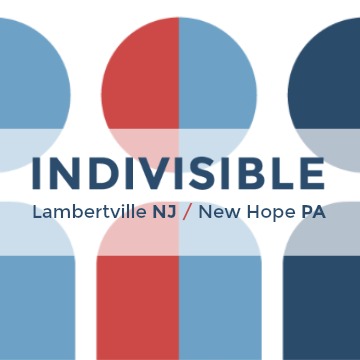Contributed by Alexis Berends & Amara Willey.
Remember the slogan “Reduce, Reuse, Recycle.” Recycling is the last option and is not guaranteed, even after you put it in your bin. It is important to first reduce your plastic usage, reuse whatever plastics you cannot avoid, and THEN recycle if you can’t avoid it. Make sure to closely follow your local recycling rules as well to ensure they make it to the next stage in the process.
The best way for individuals to contribute to the greening of the planet is to increase the use of sustainable products and packaging. We suggest that you start simple. Choose one way to live more sustainably, make it a habit, and expand from there. Something as simple as taking your own bags to the grocery store adds up over time. Or taking your own cutlery rather than using plastic when you get takeout or convenience food at the store.
Here are some other suggestions. If you have other tips, please leave them in the comments below.
Groceries
- Choose produce without plastic packaging: Bring your own produce bags to the grocery store, or buy produce from farmers markets who generally avoid plastic usage. This has the added bonus of keeping your money in the local economy, and avoiding fossil fuels that are used in transportation.
- Get a produce delivery service such as Misfits Market. Their packaging is pretty green; the plastic ice packs can be donated to the local food bank.
- Sign up for local CSA boxes. Some good farms in the Lambertville/New Hope area are Locust Light Farms, Spring Creek Farm, Gravity Hill Farm, and North Slope farm.
- Buy in bulk and skip a lot of packaging. Basil Bandwagon offers bulk supplies, as well as a few places online. Bring your own cloth bags so you don’t have to use the plastic ones. (A friend made some for me from an old cotton sheet.)
- Bring your own bags & containers to local bakeries, the butcher shop and the fish store. You can often use them at the specialty counters at the grocery store, as well.
- Stop eating seafood, altogether. Over 50% of all the plastic in the ocean is from the fishing industry. 45% alone is from discarded “ghost nets” which continue to kill fish for decades, if not centuries to come. If you absolutely must eat seafood, grab a rod and reel and get it yourself! But remember, over 90% of seafood species tested have plastic in their cells.
- Do your own preserving and fermenting to keep veggies throughout the cold season. There are added health and immunity benefits to eating preserved and fermented foods as well, so this is great for the colder months when we get sick a bit easier.
- Bring your own growler to a brewery or certain liquor stores to fill instead of getting plastic-lined cans with plastic can toppers. While the can toppers are made from recycled plastic, they cannot be tossed in your regular home recycling and need to be dropped off at special locations. They are only able to be recycled once more thereafter, which limits their lifespan. Moreover, the brewing industry is largely moving away from glass bottles and to plastic-lined aluminum cans. Bringing a growler (crowler, or mini-growler!) is a much more sustainable way to get your beer…it’s fresher, and way more fun too! Pine Creek Liquors in West Amwell offers growler services, as well as Odd Bird Brewery in Stockton, Triumph Brewery in New Hope and Princeton, Lone Eagle Brewery in Flemington, and most other local breweries.
- Jump on the home brewing bandwagon and make your own beer, wine and mead. Reusable beer and wine containers with pressure tops are available.
- Buy tea in bulk and use tea defusers to brew your own tea. Most tea bags are made of plastic. Arbor Tea is a good source for bulk organic tea.
Yard
- Grow food, not lawns! There is something magic about growing, harvesting, and cooking your own food. Even if you only have a small window in an apartment, it is still possible to grow at least your own herbs. Americans spend so much time and dump so many chemicals on their (usually non-native) grass lawns, which goes into the watershed causing eutrophication – over enrichment that leads to algal blooms and kills off animal life. Converting even part of your yard to grow lettuces, kales, potatoes, peas, etc. will cut down on fossil fuel transport as well as plastic shipping and baggage. It will also give you the added bonus of getting your hands in the dirt which is good for both your immune system and your spirit!
- Compost. Even if you are in an apartment, you can compost. Sometimes your local farm or a friend with a garden will take your compost. Apartment composters are also available (I got mine used on Craigslist).
Household
- Use soap nuts instead of laundry detergent. They are compostable, a natural surfactant and fabric softener, and plastic free! Add some essential oils for added fragrance, vinegar in place of bleach, and baking soda as added fabric softener.
- Dansoap, which is available at Basil Bandwagon, is a power that comes in a cylindrical cardboard container lined with a compostable plastic bag and has a cardboard scoop.
- Thrift Books is great for second-hand books. So are library book sales. Or just use your local library and keep books only as long as you are reading them.
- Use walnut or coconut husk scour pads for the kitchen, as well as natural fiber dish brush;
- Use a dish soap block instead of liquid soap from a plastic bottle. Dish soap blocks are usually castile soap and eco-friendly too. Cutting out liquid products helps with the carbon cost of delivery too since you aren’t buying extra water with your products.
- Choose tea towels and rags over paper towels. I bought 100 percent cotton washcloths that I use over and over to clean everything. I even wrap food in them to bring for lunch and then use them as my napkin.
- Use reusable silicone plastic sandwich and freezer bags rather than single use plastic bags.
- Choose beeswax wraps over plastic wrap. These are reusable and smell great!
- Toilet cleaning balls and bath bombs can be used instead of liquid cleaners.
- Reel toilet paper is made of bamboo, wrapped in paper and comes in a cardboard cartoon. They sell paper towels as well, if you aren’t able to use rags.
- Don’t hit the print key. Try to keep all your data, music and videos in electronic format.
Personal Care
- Only use certified, non-nano Reef Safe Sunblock. The most reef-friendly sunblocks include pure zinc, coconut oil (spf 5), or raspberry seed oil (spf 28-50 to UVB and UVC, and spf 8 against UVA, so use in conjunction with coconut oil and/or zinc, depending on the level of protection you seek).
- Use a metal razor with replaceable blades. Albatross razors are great. They are stainless steel and you can even send back your used razors blades for them to recycle.
- Skip the plastic bath puff and use a loofah. Loofah actually comes from gourds and you can grow them in your garden!
- Radius dental floss comes in a cardboard container and is waxed cotton
- Use bamboo toothbrushes, brushes and combs. Bamboo is basically a weed and so is much more sustainable than wood-sourced products.
Clothing
- Shop second hand! Consignment shops and thrift stores help move away from the “fast fashion” industry. There are great second hand places online if you can’t find any in your area. Staying local will be the best way to avoid the environmental impacts of shipping, but there are a few great sites online that offer second hand (or even free) products so you don’t have to buy virgin materials. Poshmark is great for clothing, as well as Freecycle, Craigslist, or even Facebook Marketplace.
- There are several companies who use recycled plastic to make clothing as well, such as Teeki, Waterlust, Vaga Bella Swim, and even Adidas who teamed up with Parley for the Sea and use only plastics reclaimed from the oceans.
- Get together with friends for clothing swaps (outside during the Great Pause) and refresh your wardrobe.
Travel
- Bring empty water bottles, travel mugs, and reusable take out containers with you. Empty water bottles in the airport can be filled at a water fountain past the security check in and brought on the plane.
- Silicone plastic bags are resealable and reusable
Resources:
- https://myplasticfreelife.com/plasticfreeguide/
- www.Gaiahatesplastic.blogspot.com
- www.lifewithoutplastic.com
- www.misfitsmarket.com
- https://educatedearthling.com/
- https://habitatbotanicals.com/
- https://us.whogivesacrap.org/
- https://consciousstep.com/
- https://thesustainabletomorrow.com/
- https://reelpaper.com/




This is great! Thanks for the suggestions. 🙂
Excellent ideas , thanks! ?